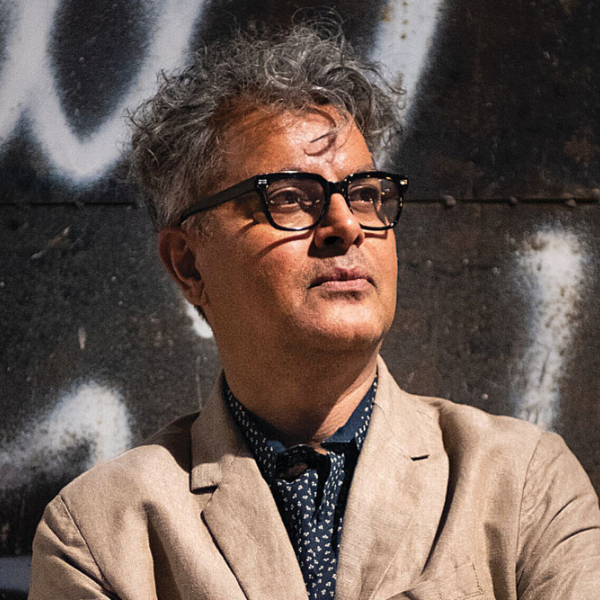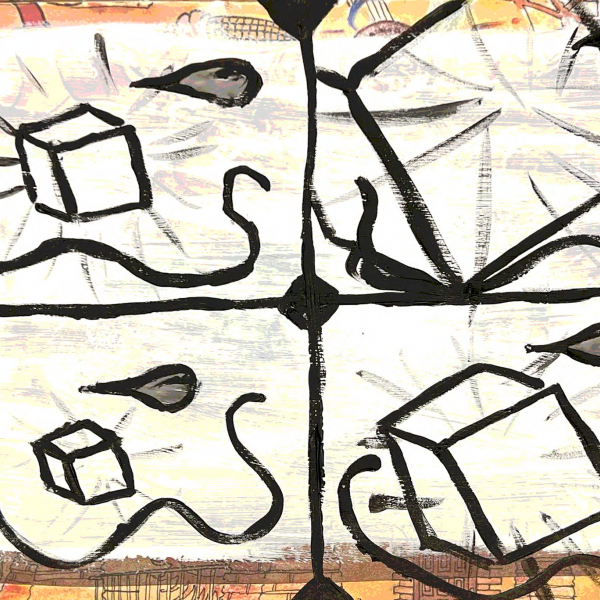Interview with Rebecca Ginsburg, Director of the Education Justice Project at the University of Illinois, Champaign-Urbana
By Margaret Garb
Professor of History
Washington University
For more details on Rebecca Ginsburg's September 24 lecture, please click here.
On how Rebecca Ginsburg got involved in prison education
I started teaching in prison while a graduate student (in architectural history) at U.C. Berkeley. I became part of the San Quentin program — now known as Prison University Program — around 1997. I'd thought I’d do it for a semester but found it more meaningful and fun than I had expected. So, I stuck with it. When I moved to Illinois in 2004 (after a two-year post-doc at WashU), I came with the intention of starting a program here. In fact, I raised this during my interview. My prospective department head said he would be supportive. Of course, I don’t think either one of us knew what would be involved! [In summer 2008, Ginsburg, along with several UIC colleagues launched the Education and Justice Project at Danville prison. Since then, more than 190 incarcerated men have earned college credits through EJP courses.]
On the restorative impact of education for incarcerated individuals
One of the conditions of incarceration is being told, in effect, that you are not needed. “Society doesn’t want you. You’re not of use to us.” How painful. Through these programs, EJP students are able to recover the sense of joy and purpose that comes from working with others in pursuit of meaningful action. That’s something that humans need to be their best selves — the opportunity to know that they’re making a difference in the world. It’s one reason our students will fight so hard to be able to participate.
On EJP’s approach and programs
EJP aims to create a college at the prison. Why? Because research seems to demonstrate — and our own experiences tell us — that it’s not simply acquisition of “book knowledge” that’s responsible for a successful college experience. It’s also the ability to spend time with people who, like you, are interested in ideas, books, inquiry and scholarship. Participating in a cohort of individuals supportive of you and your dreams is one thing that gives people who attend advantages over those who are unable to do that. We’re at the prison Monday through Friday, morning through evening.
We offer writing, math, science and business courses; a mindfulness discussion group; an ESL program (we train our students as peer ESL instructors, and they teach men in the general population); Chicago Anti-Violence Education (we train our students as peer facilitators, and they work with the general population on a trauma-informed anti-violence education); a guest lecture series; tutoring several nights a week; a computer lab several nights a week; all-student meetings at least once a semester; and each semester the students host a convocation at which they welcome incoming students and instructors.
On the outside, we run several programs under our Family and Community Engagement (FACE) initiative. They include monthly meetings for alumni (formerly incarcerated students) in Chicago and open houses in Chicago twice a year for family members of incarcerated and formerly incarcerated men, which have become a resource fair and networking opportunity. Through the Ripple Effect (Reaching Inside Prisons with Purpose and Love), we gather once a month to write letters to people incarcerated and have occasional public forums about issues related to incarceration. We’re also developing a reentry manual [with alumni help] for the state, with special focus on Chicago.
We’ve also developed workshops by EJP members, alumni and family to an audience (primarily) of family members on topics such as writing to your loved one in prison, preparing for re-entry and advocating for your loved one in prison. [Also in the works is a speakers bureau.] We want to provide public speaking training to the alumni and family members, who are also invited to speak about the collateral costs of incarceration.
“Why Universities Should Be in Prisons”
Rebecca Ginsburg
Associate Professor, Departments of Education Policy, Organization and Leadership and in Landscape Architecture; Co-founder and Director, Education Justice Project, University of Illinois
September 24, 4 pm
Clark-Fox Forum, Hillman Hall
 On the benefits and drawbacks to college-in-prison programs
On the benefits and drawbacks to college-in-prison programs
I don’t think there are drawbacks to college education for incarcerated individuals, but there are costs. The costs include being singled out by correctional officers (COs) who may resent that they’re getting free, quality education. And the COs have a point. Everyone in our country who’s eligible for college should have access. But the costs for our students might be being hassled and made the focus of unwanted attention.
Another cost is that prison isn’t set up, typically, for college. Many of our students still have to work during the day — [most places,] college doesn’t count as a job. We have students who study in the middle of the night because that’s when they have the time. Or who have to skip showers or phone calls to attend college. I hate that we’re asking them to make such choices and respect them so much for choosing their education. And those who do things like the ESL program and Chicago Anti-Violence see themselves, correctly, as offering needed and valuable services to others in the prison, and that’s deeply meaningful to them.
On the rewards of teaching in a prison education program
One reason that we have so many people offering to work with us is that they recognize that our system of incarceration is a huge blight upon our nation, and it requires that decent people step forward and work for change. I see our work as contributing to meaningful social change, in at least a few ways:
Equipping our students to communicate their perspectives on incarceration and related matters and providing the forums for them to be heard.
Promoting critical discussion of criminal justice and incarceration on campus and in the community.
Pushing other state agencies for more humane recognition of incarcerated individuals and the needs of their family members.
On higher education’s potential to create change
I think the power of higher education in prison programs lies in our capacity to contribute to a shift in thinking around our current situation — most especially the outrageous numbers of incarcerated and outrageous expenses associated with imprisonment. That’s what universities do well, and it’s what brings so many to EJP.




